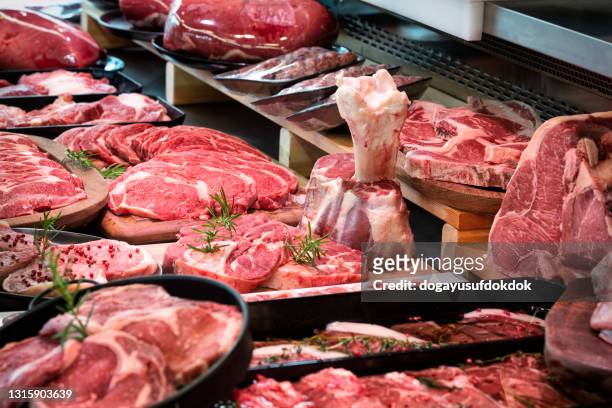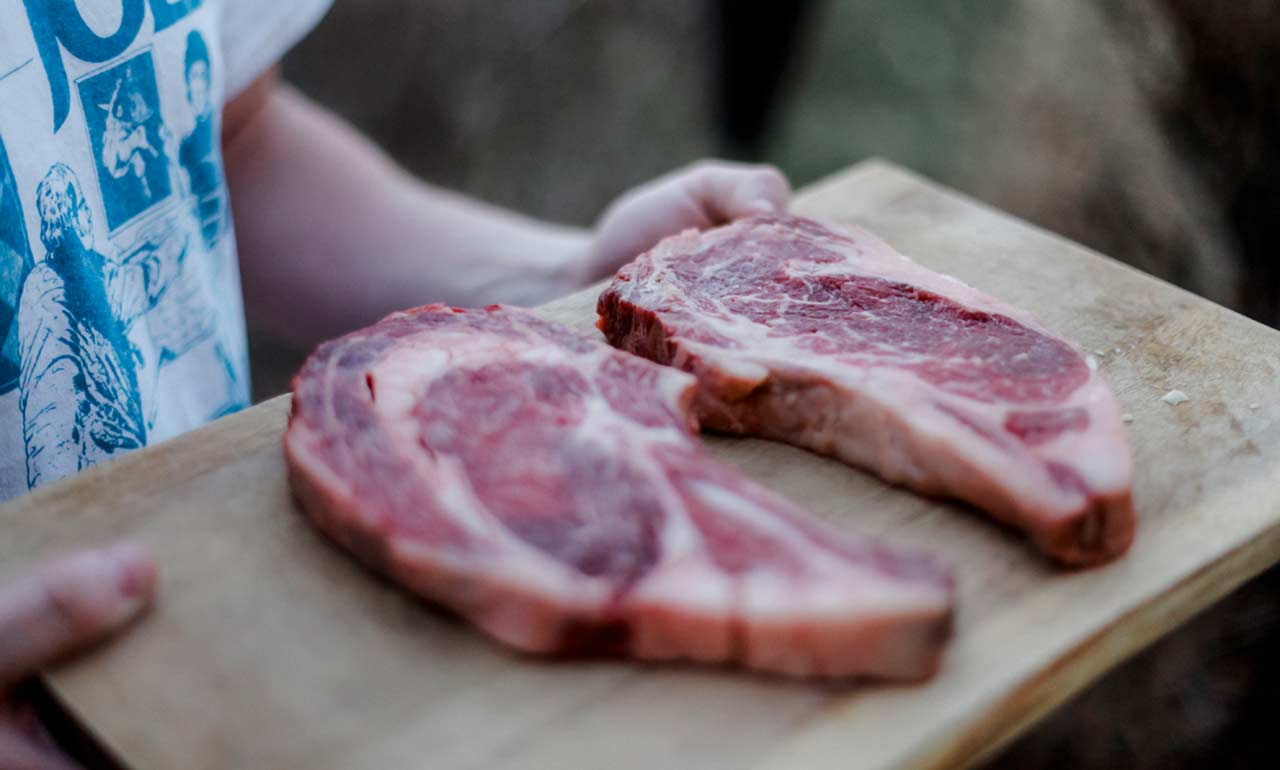Why Buying at a Local Meat Market Guarantees Fresh, High-Quality Cuts
Shopping at a neighborhood meat market offers unique advantages that typically go undetected by customers accustomed to bigger retail chains. The effects of picking regional prolong past prompt advantages, motivating a closer assessment of what this option truly suggests for both consumers and the local economic situation.
Benefits of Regional Sourcing
In the world of food procurement, the advantages of local sourcing stand apart plainly. By acquiring meat from regional markets, consumers get direct accessibility to items that are often fresher and extra flavorful than those located in bigger, business grocery stores. Regional sourcing reduces the moment and range food takes a trip from farm to table, which not only boosts taste but also protects nutritional value.

Moreover, local sourcing commonly provides openness pertaining to the beginnings of the meat. Consumers can make inquiries concerning the farming practices made use of, animal well-being criteria, and whether the meat is natural or grass-fed. This details empowers customers to make educated decisions straightened with their values.
High Quality Control Criteria
Local meat markets commonly stick to rigorous quality assurance standards that make certain the products used fulfill high safety and security and quality criteria. These standards generally incorporate different stages of the meat production procedure, from sourcing to dealing with and storage.
First, local markets often establish rigorous vendor requirements, ensuring that just credible farms and manufacturers are used - bagley meat market edwardsville il. This decreases the likelihood of contamination and promotes greater animal well-being standards. Additionally, numerous neighborhood meat markets carry out regular assessments to verify that the meat is processed under sanitary problems, further decreasing health risks
Temperature control is one more critical element of quality assurance. Regional meat markets regularly keep track of refrigeration systems to keep optimal storage temperature levels, making certain that meat stays safe and fresh for usage. The implementation of traceability systems enables markets to track the beginning of their products, offering transparency and liability.
Lastly, personnel at neighborhood meat markets are often trained to identify indications of perishing and understand proper handling methods. This commitment to top quality control not only elevates the general requirement of the meat however also promotes consumer depend on, making neighborhood meat markets a reliable source for high-grade cuts.
Supporting Regional Farmers
Supporting neighborhood farmers is necessary for cultivating a lasting food system and boosting area strength. When customers select to patronize regional meat markets, they directly add to the incomes of farmers in their area. This not only sustains the local economic situation but likewise strengthens the agricultural field, ensuring that it continues to be sensible and dynamic.


Furthermore, supporting neighborhood farmers cultivates a feeling of community and connection between consumers and producers. It motivates openness in food sourcing and infuses count on, as consumers can develop relationships with the individuals who increase their food. This direct link inevitably leads to a more engaged and informed public, which is important for supporting for sustainable agricultural practices in the future.
Sustainable Practices
Sustainable practices look at here now in meat markets play a critical role in promoting environmental stewardship and guaranteeing animal welfare. Local meat markets typically focus on sourcing their items from ranches that carry out sustainable and moral farming methods. These practices consist of rotational grazing, which aids preserve soil health and reduces carbon discharges, alongside minimizing using anti-biotics and hormonal agents in animals.
In addition, neighborhood meat markets normally highlight transparency in their supply chains. Consumers are given with information pertaining to the beginning of their meat, allowing them to make enlightened options that line up with their worths. By sustaining regional farmers who practice lasting techniques, consumers contribute to the preservation of biodiversity and the decrease of transport emissions connected with long-distance meat circulation.
Additionally, numerous local meat markets engage in waste reduction methods, such as using every part of the pet and promoting off-cuts that could or else go unsold. By fostering a much more sustainable strategy to meat intake, these markets not just provide top quality items yet also contribute favorably to the environment and animal welfare. In essence, buying at a local meat market straightens consumers with a wider activity in the direction of moral and responsible food sourcing.
Personalized Customer Care
Purchasing at a meat market usually includes greater than simply the items used; it is also regarding the experience and the connections constructed between customers and personnel. Personalized client service is a characteristic of neighborhood meat markets, setting them apart from bigger grocery store chains. Educated team put in the time to comprehend specific consumer choices, guaranteeing that each go to is customized to particular requirements.
Clients profit from professional suggestions on cuts, cooking approaches, and preparation suggestions, promoting a feeling of trust and loyalty. This personalized interaction allows customers to ask concerns and seek referrals, resulting in informed purchasing decisions. Employee often bear in mind normal customers and their right here preferences, producing a welcoming environment that cultivates community connections.
In addition, individualized service expands to special demands, such as custom cuts or details preparation techniques, which larger retailers may not fit. This degree of interest reinforces the commitment of local meat markets to quality and client complete satisfaction.
Basically, customized customer service not only enhances the shopping experience yet likewise makes certain that consumers entrust the most effective items suited to their culinary needs, making every see a satisfying one.
Final Thought
In conclusion, purchasing at a local meat market offers countless benefits, consisting of premium quality and high quality due to reduced traveling times. Stringent quality assurance Find Out More measures enhance transparency and ensure high standards for products. Supporting local farmers fosters neighborhood relationships and reinforces the neighborhood economic climate, while lasting techniques add to ecological stewardship. Furthermore, personalized client service improves the buying experience, making neighborhood meat markets a preferred selection for customers seeking both quality and honest considerations in their food sourcing.
The implications of selecting local prolong beyond instant benefits, motivating a more detailed assessment of what this choice genuinely means for both customers and the regional economy.
Sustaining regional meat markets likewise adds to the local economic situation. Local meat markets frequently keep an eye on refrigeration systems to preserve ideal storage temperature levels, guaranteeing that meat remains secure and fresh for usage.Local farmers are typically more attuned to the certain demands of their neighborhoods, growing crops and raising animals that line up with regional preferences and choices. Supporting neighborhood farmers cultivates area partnerships and enhances the neighborhood economic situation, while lasting practices add to environmental stewardship.